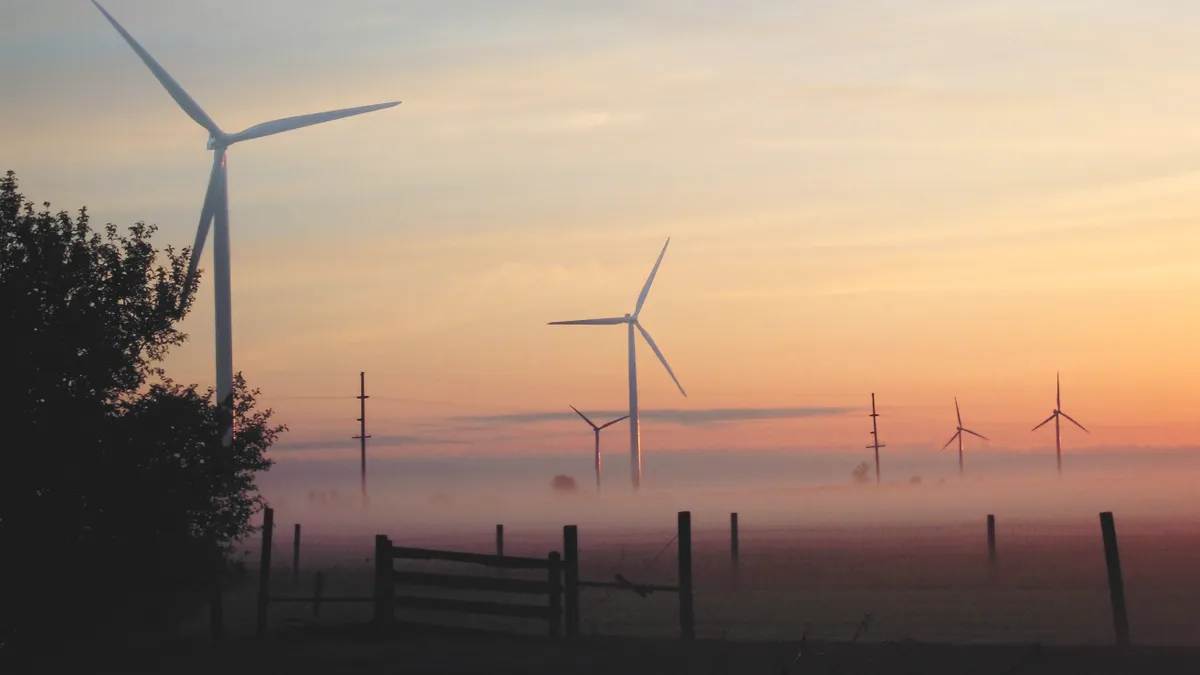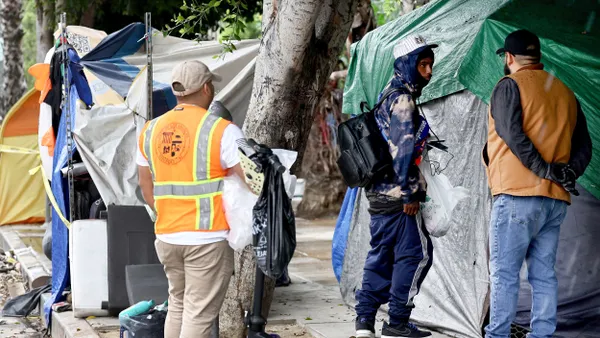Dive Brief:
- Rep. Debbie Dingell, D-MI, introduced legislation last week to create a National Climate Bank that would leverage public funding to finance and support clean energy projects around the country. The bank would be funded with $35 billion over six years, with the aim of mobilizing up to $1 trillion in private investment.
- The bank would be set up as an independent, nonprofit body to provide capital and technical assistance to clean energy projects, or to provide financing to smaller state- and regional-level climate banks.
- Dingell’s bill has three Democratic cosponsors: Reps. Paul Tonko, D-NY; Lisa Blunt Rochester, D-DE; and Cindy Axne, D-IA. A companion bill from Sens. Ed Markey, D-MA, and Chris Van Hollen, D-MD, has been introduced in the Senate.
Dive Insight:
The high up-front cost of clean energy projects has proven to be a barrier to cities and states trying to move away from fossil fuels. The National Climate Bank would not only offer seed money for those types of projects, but would be staffed by people with technical expertise in clean energy and who could navigate the sometimes complex financing mechanisms.
A September report from the New York-based Coalition for Green Capital (CGC) found that a bank along the lines of Dingell’s proposal could mobilize up to $1 trillion of investment over 30 years.
Fourteen states including Michigan, New York and Hawaii already have banks, and some cities and counties have explored their own. Washington, DC, for example, approved one in 2018 and Baltimore's Climate Access Fund seeks to help low-income and minority residents access more expensive solar energy. The smaller banks can help target investment in certain communities that need it, but the national bank would help mobilize investment on the necessary scale — and faster than the private sector could, CGC Executive Director Jeffrey Schub told Smart Cities Dive.
"This is a critical piece of any sort of comprehensive climate policy. This is what an implementation tool looks like," he said. "The private markets might figure this out in time, but because time is a factor, you have to put your foot on the gas."
Although Dingell’s bill is unlikely to become law under the Trump administration, it does raise the profile of the climate bank ideas. As more states and localities have explored banks, presidential campaigns have also gotten behind the idea. Candidates like Pete Buttigieg and Julian Castro have put banks in their climate plans, and it’s likely that any future climate package could include such a financing tool.











